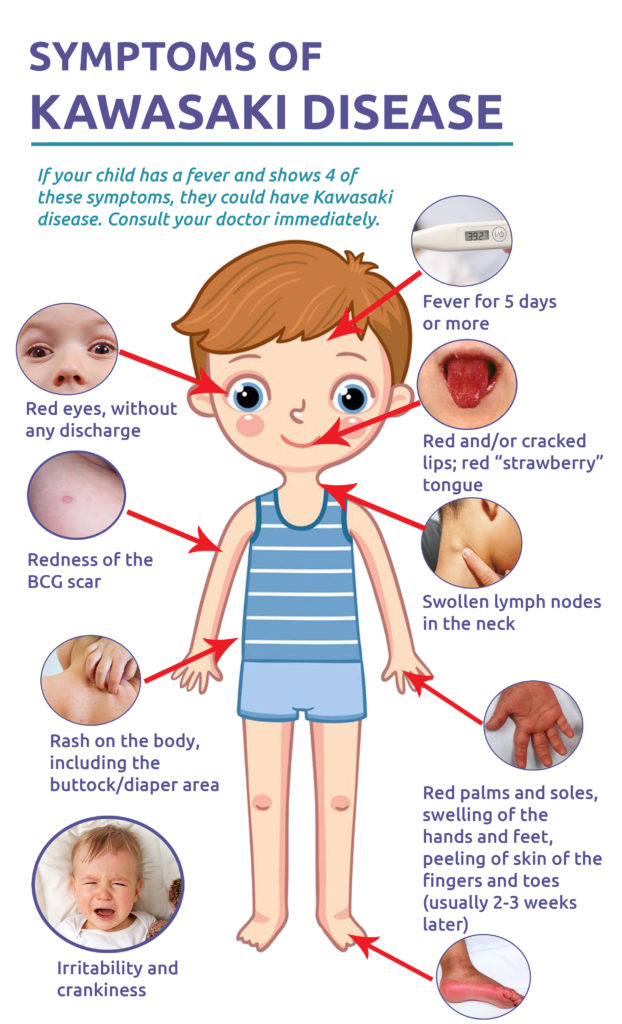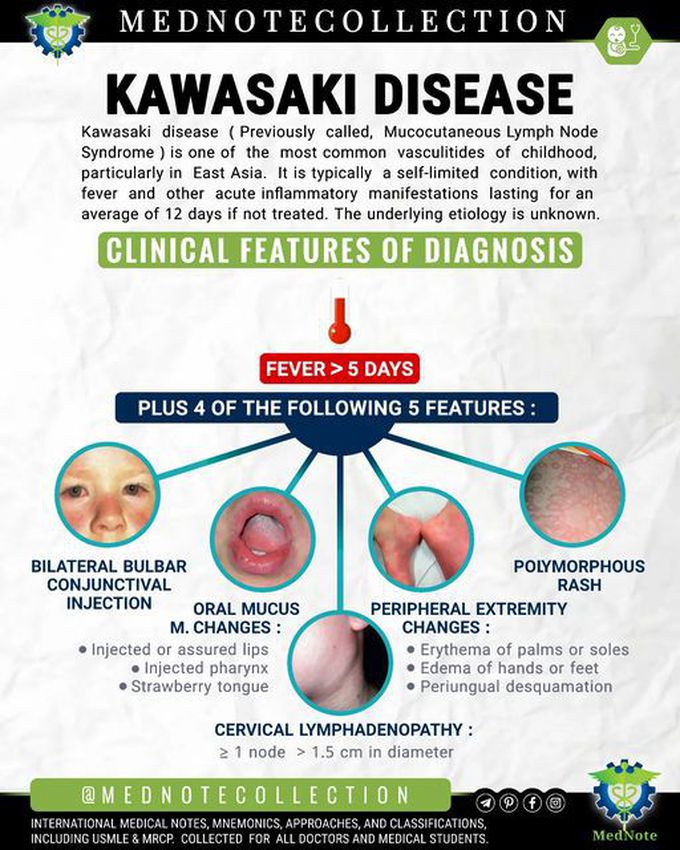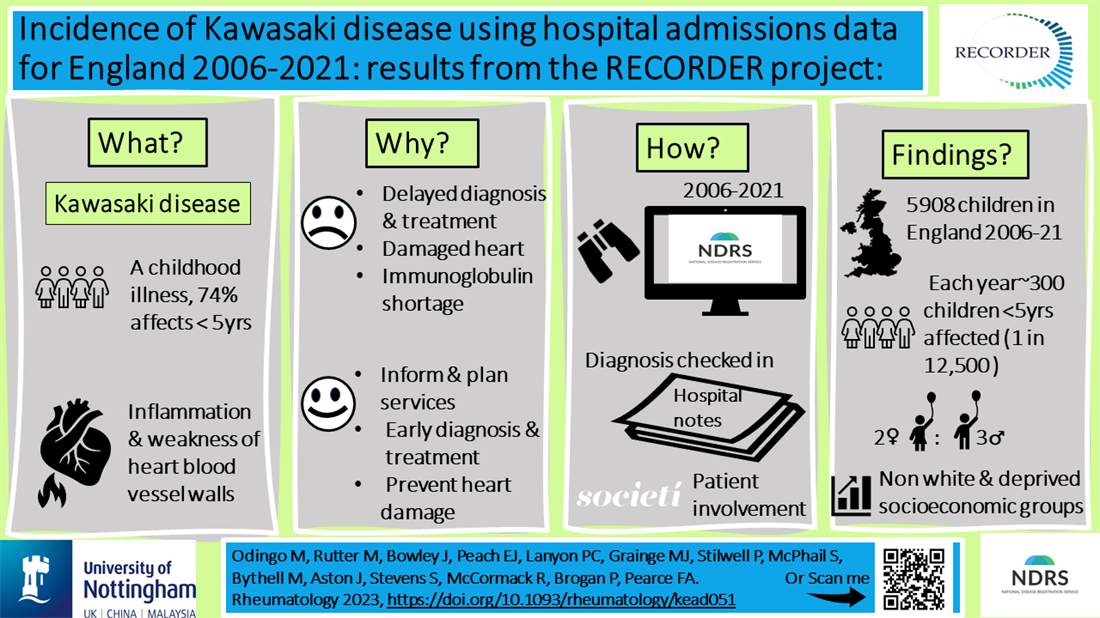Uncovering the mysterious origins of Kawasaki Disease: delving into the baffling factors behind this rare childhood illness phenomenon.
Table of Contents
- Introduction: The Mystery of Kawasaki Disease
- What Is Kawasaki Disease?
- Main Symptoms of Kawasaki Disease
- What Causes Kawasaki Disease?
- Complications of Not Catching It Early
- Diagnosing Kawasaki Disease
- Treatment Options for Kawasaki Disease
- Prevention and Control Measures
- Living with Kawasaki Disease
- Myths vs. Facts
- Summary: What We’ve Learned About Kawasaki Disease
- FAQs: Questions Kids Ask About Kawasaki Disease
Introduction: The Mystery of Kawasaki Disease
We’re going on a quest to understand Kawasaki Disease, a rare illness that can affect children’s hearts. Jump in, and let’s unravel this mystery together!
What Is Kawasaki Disease?
Do you know what Kawasaki Disease is and who it affects? Let’s dive into this topic and explore more about this rare illness that can impact children.
Defining Kawasaki Disease
Kawasaki Disease is an inflammatory condition that mainly affects kids. It can cause problems in different parts of the body, especially the heart. This disease was first discovered by a Japanese doctor named Tomisaku Kawasaki, hence the name.
Who Gets Kawasaki Disease
Kawasaki Disease is most commonly found in children under the age of five, especially in those who are of Asian descent. While it’s rare, it can still happen to kids of any ethnicity. Doctors are working hard to understand why this illness seems to target younger children.
Main Symptoms of Kawasaki Disease
When it comes to identifying Kawasaki Disease, there are certain signs that can act as red flags for doctors. One of the most common symptoms is a persistent high fever that lasts for at least five days. This fever may not respond well to typical fever-reducing medications, which can be a telltale sign for healthcare providers.

Image courtesy of healthwaymedical.com via Google Images
Another key indicator of Kawasaki Disease is the development of a rash, usually on the trunk of the body. This rash may appear as red or pink patches and could be accompanied by peeling skin on the hands and feet, resembling a sunburn. Additionally, children with the illness often experience redness in their eyes, along with irritation and swelling of the mucous membranes in their mouth, throat, and lips.
In some cases, children with Kawasaki Disease may also exhibit swollen lymph nodes in their neck and a red, swollen tongue, commonly referred to as “strawberry tongue.” These symptoms, when observed together, help doctors in diagnosing Kawasaki Disease and initiating prompt treatment to prevent potential complications.
What Causes Kawasaki Disease?
We’ll explore what doctors think might cause this rare illness in children.
Searching for Clues
Kawasaki Disease is still a bit of a mystery in the medical world. Doctors believe that it might be triggered by a combination of genetic factors and environmental triggers, but they don’t yet have a definitive answer. Some studies suggest that viruses, bacteria, or other infectious agents could play a role in sparking the inflammatory response seen in Kawasaki Disease.
Researchers are working hard to uncover the exact cause of this illness so that better treatments and preventive measures can be developed. By understanding what leads to Kawasaki Disease, doctors hope to improve outcomes for affected children and reduce the risk of heart complications.
Complications of Not Catching It Early
When it comes to Kawasaki Disease, catching it early is crucial. Let’s dive into why recognizing the signs promptly is so important.

Image courtesy of medizzy.com via Google Images
Problems for the Heart
One of the main complications of not catching Kawasaki Disease early is the risk it poses to the heart. This illness can lead to inflammation in the blood vessels, including those around the heart. When left untreated, Kawasaki Disease can cause serious damage to the heart, leading to conditions like coronary artery aneurysms.
Coronary artery aneurysms are abnormal bulges in the blood vessels that can form as a result of the inflammation caused by Kawasaki Disease. These bulges can weaken the blood vessels, making them more prone to blockages and putting the child at risk of heart attacks or other cardiac issues later in life.
By recognizing the symptoms of Kawasaki Disease early on and seeking prompt treatment, doctors can help reduce the risk of heart complications and provide the necessary care to protect the child’s heart health.
Diagnosing Kawasaki Disease
When it comes to figuring out if someone has Kawasaki Disease, doctors need to play detective to uncover the truth. This rare illness can be tricky to spot, but with the right clues, they can crack the case.
Doctor’s Detective Work
Doctors use a variety of tests and checks to piece together the puzzle of Kawasaki Disease. The key is to look for a combination of symptoms that point in the right direction.
One important tool in the detective kit is blood tests. By examining the levels of certain substances in the blood, doctors can get closer to a diagnosis. They also keep a close eye on the patient’s temperature and any changes in their heart, as these can be telltale signs of Kawasaki Disease.
Another crucial clue is the presence of certain symptoms for a certain period of time. A red flag for Kawasaki Disease is a fever that lasts for five days or more, accompanied by other symptoms like a rash, red eyes, swollen hands and feet, and a swollen tongue.
Additionally, doctors might order an echocardiogram, which is like a special ultrasound for the heart. This test helps them check for any possible heart complications caused by Kawasaki Disease. By putting together all these pieces, doctors can confidently diagnose and treat Kawasaki Disease.
Treatment Options for Kawasaki Disease
When it comes to tackling Kawasaki Disease, doctors have a few tricks up their sleeves to help kids feel better and get back on their feet.
4.png)
Image courtesy of www.jatinverma.org via Google Images
Medicine to the Rescue
One of the main ways doctors combat Kawasaki Disease is through medications. These special drugs can help reduce the inflammation in the body, bring down the fever, and protect the heart from potential damage. Doctors might prescribe aspirin and immunoglobulin, which are substances that can help the body fight off the disease.
Another essential part of treatment is making sure kids get enough rest and stay hydrated. Rest helps the body heal and regain strength, while staying hydrated keeps the body in top shape to battle the illness.
By combining medication, rest, and hydration, doctors can give Kawasaki Disease a run for its money and help kids bounce back to good health.
Prevention and Control Measures
Is there a way to stop Kawasaki Disease before it starts? Let’s look at the advice from doctors.
Stopping Disease in its Tracks
Doctors recommend that parents keep a close eye on their children’s health to catch any potential signs of Kawasaki Disease early. If a child develops a persistent fever lasting more than a few days or shows other symptoms like a rash, red eyes, swollen hands or feet, or irritated mouth, it’s crucial to seek medical attention promptly.
Preventive measures include maintaining good hygiene practices, especially handwashing, as this can help reduce the risk of infection. It’s also important for children to receive routine vaccinations and stay up-to-date with their immunizations to protect against other illnesses that could potentially trigger Kawasaki Disease.
While there’s no foolproof way to guarantee immunity against Kawasaki Disease, staying vigilant and practicing healthy habits can minimize the chances of contracting this rare and concerning condition.
Living with Kawasaki Disease
After kids have had Kawasaki Disease, they might wonder what comes next. This rare illness can leave some effects that stick around, especially when it comes to their hearts. Doctors keep an eye on how their hearts are doing with check-ups and tests. It’s like having a heart bodyguard watching out for any trouble.
| Cause | Description |
|---|---|
| Unknown | The exact cause of Kawasaki disease is unknown, but it is believed to be triggered by an abnormal immune response in genetically predisposed individuals. |
| Viral Infections | Some researchers believe that viral infections may play a role in triggering Kawasaki disease, although no specific virus has been definitively linked to the disease. |
| Genetic Factors | There is evidence to suggest that genetic factors may increase the risk of developing Kawasaki disease, as certain ethnic groups (such as Asians) are more prone to the condition. |
| Environmental Factors | Some studies have explored the possibility that environmental factors, such as toxins or pollutants, may contribute to the development of Kawasaki disease, but more research is needed to confirm this link. |

Image courtesy of www.nottingham.ac.uk via Google Images
For some kids, their hearts might stay healthy and strong without any more issues. Others might need more help from doctors to make sure everything is still working just right. It’s important to listen to what the doctors say and take good care of their hearts. With time and care, most kids can go back to playing, running, and having fun like before Kawasaki Disease came knocking on their door.
Parents can help by encouraging healthy habits like eating well, staying active, and following the doctor’s advice. By teaming up with doctors and looking after their hearts, kids can keep living their best lives even after dealing with Kawasaki Disease. It’s all about taking small steps every day to stay strong and healthy.
Living with Kawasaki Disease might sound a bit daunting, but with support from family, friends, and healthcare providers, kids can bounce back and continue on with their adventurous journey of growing up. And remember, they’re not alone – there are many others out there who understand what they’ve been through and are cheering for their comeback every step of the way.
Myths vs. Facts
Let’s clear up some misunderstandings and get to the truth about Kawasaki Disease.
Myth: Kawasaki Disease only affects adults.
Fact: Kawasaki Disease is actually a pediatric illness, which means it mainly affects children. It is quite rare in adults but can occur in people of any age.
Myth: Kawasaki Disease is contagious like a cold.
Fact: Kawasaki Disease is not contagious and cannot be spread from one person to another. It is believed to be caused by a combination of genetic and environmental factors.
Myth: Kawasaki Disease has clear and well-known triggers.
Fact: The exact cause of Kawasaki Disease is still unknown, and while some factors like infections or genetic predisposition may play a role, there is no definitive trigger that causes the illness.
Myth: Children with Kawasaki Disease always have long-term heart complications.
Fact: While Kawasaki Disease can lead to heart complications if not treated promptly, not all children who have the illness will experience long-term issues with their hearts. Early diagnosis and appropriate treatment can greatly reduce the risk of complications.
By separating fact from fiction, we can better understand Kawasaki Disease and how to recognize and manage it effectively.
Summary: What We’ve Learned About Kawasaki Disease
After delving into the depths of Kawasaki Disease, a peculiar and uncommon illness that primarily targets children, we have unearthed intriguing discoveries.

Image courtesy of www.researchgate.net via Google Images
Peek into Kawasaki Disease
Kawasaki Disease is not your ordinary malaise; it’s an inflammatory condition that perplexes the medical world. This condition taunts kids, mainly targeting their small hearts, sending medical detectives on a mission to unravel its mysteries.
Little Victims of Kawasaki Disease
The little ones are the primary targets of this enigmatic illness. Kawasaki Disease doesn’t discriminate; it can affect any child, triggering a series of symptoms that raise red flags for doctors to pay heed to.
The Elusive Cause of Kawasaki Disease
As doctors strive to piece together the puzzle of Kawasaki Disease, they face a perplexing mystery. The exact cause remains shrouded in uncertainty, with potential triggers lurking in the shadows, waiting to be uncovered.
Ticking Time Bomb: Heart Complications
If left unnoticed, Kawasaki Disease can sow seeds of peril for the heart. It’s imperative to recognize the signs early on to prevent potentially severe heart complications from taking root.
In a nutshell, Kawasaki Disease presents as a formidable opponent to be reckoned with. Yet, with ongoing research and vigilant medical care, we inch closer to demystifying this enigmatic illness, paving the way for better outcomes and quality of life for those affected.
FAQs: Questions Kids Ask About Kawasaki Disease
Answering common questions that kids have about Kawasaki Disease.
Why can only children get Kawasaki Disease?
Doctors believe that Kawasaki Disease mostly affects children because their immune systems are still developing. Adults may have built up immunity to whatever causes Kawasaki Disease, which is why it’s rare in grown-ups.
Can Kawasaki Disease be caught like a cold?
No, Kawasaki Disease is not contagious like a cold or the flu. You can’t catch it from being around someone who has it. It’s more like your body’s immune system going a little haywire.
What happens after someone recovers from Kawasaki Disease?
After recovering from Kawasaki Disease, kids might still need to see their doctors regularly to ensure their hearts are healthy. They might need special tests or treatments to make sure everything is working well. It’s essential to keep an eye on their hearts to prevent any long-term issues.





